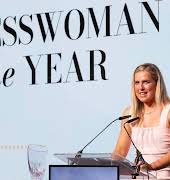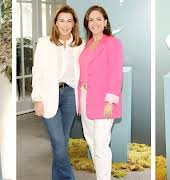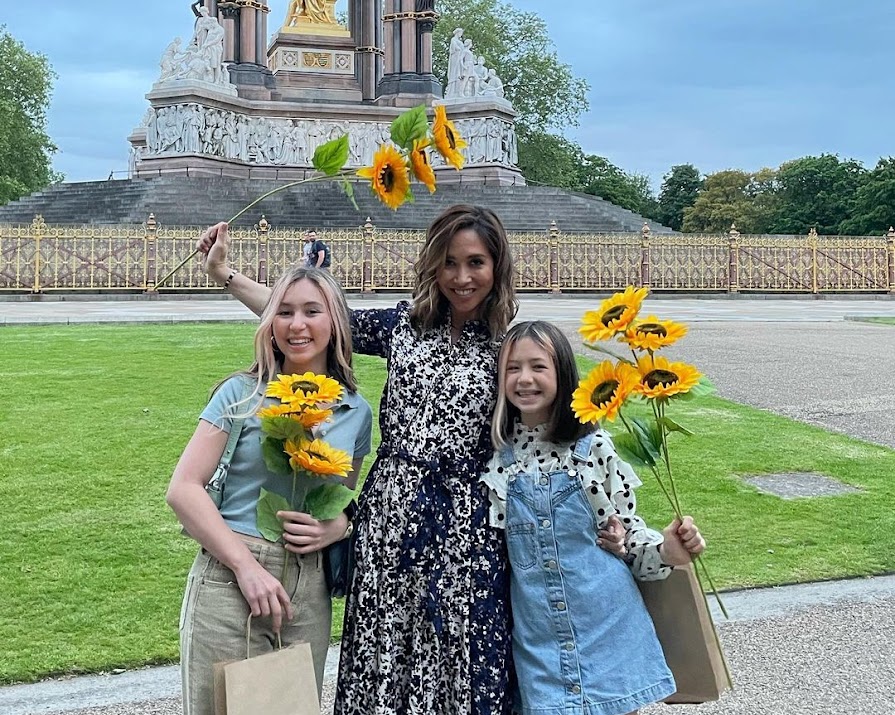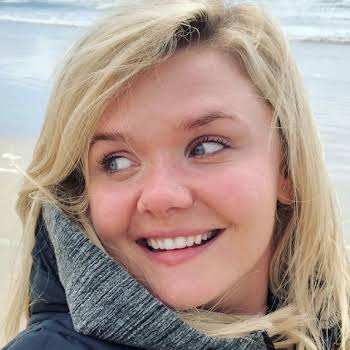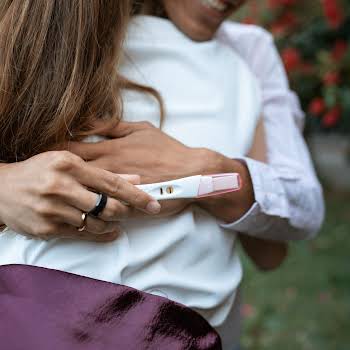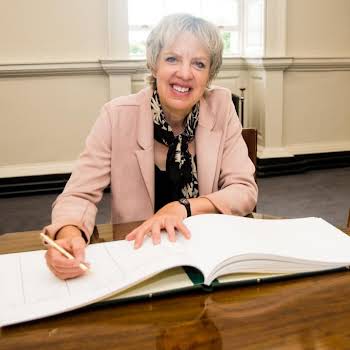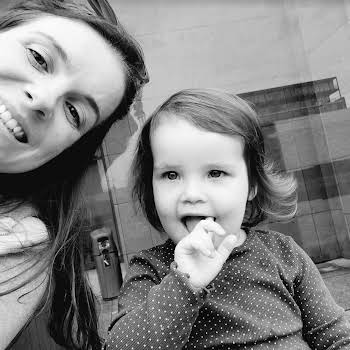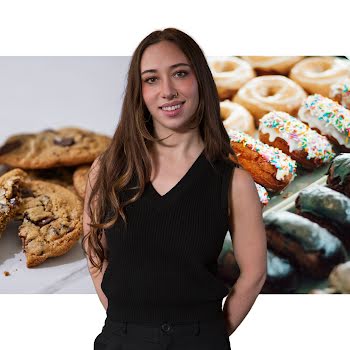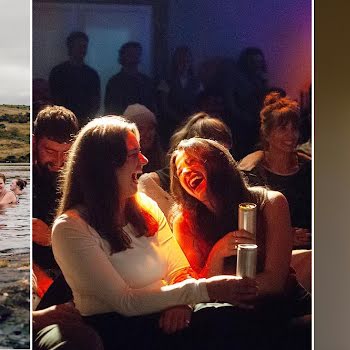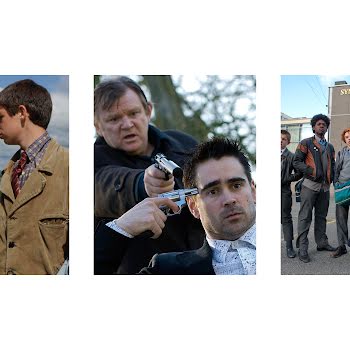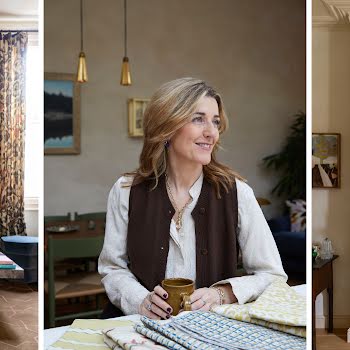By Sarah Finnan
15th Oct 2021
15th Oct 2021
“I knew from the very moment I had my first miscarriage that I’d never be the same again.”
Always vocal on the matter of taboos, Myleene Klass has spoken candidly about her experience of motherhood several times before, but her bravery in opening up about the loss of four unborn children never ceases to amaze.
First going public with her very personal story during Baby Loss Awareness Week last year, Klass said that she hoped she could help “even one lost soul” in doing so. “I am mama to 7 babies, Ava, Hero, Apollo, my rainbow baby and 4 little stars in the sky,” she wrote at the time. “To my friends and mamas who have experienced this, you are the strongest women I know,” she later added.
Wanting to facilitate continued discussions around grief, miscarriage and the trauma that losing a baby can cause, the presenter subsequently announced that she would be fronting a new documentary on the topic earlier this summer. Titled Myleene Klass: Miscarriage & Me, Klass told The Sun, “I’d like to help make these conversations a little easier. [Miscarriage] can’t go on being the big dark secret that we have to carry around.”
Advertisement
Finally airing on W just last night, the documentary timed its premiere with this year’s Baby Loss Awareness Week which is held from October 9th to 15th annually. The singer may be quite forthcoming about her own story, but processing the grief is very much an ongoing process. “I don’t think that I’m ever going to be out of the woods with this,” she told Glamour Magazine. “It’s that wound, once you open it up again you remember how painful it was the first time. It never goes away. How can it? I knew from the very moment I had my first miscarriage that I’d never be the same again.”
In fact, it’s only in hindsight that Klass actually realises just how much those losses affected her. Describing the horrible, “stomach-tightening feeling” of grief to Psychologies Magazine last month, Klass admitted that she was so devastated by each of her miscarriages that she was scared of doing almost anything while pregnant with her youngest son, Apollo – including drinking water. “I didn’t want to drink water as I was scared of needing the loo and seeing blood,” she confessed.
Later joking that he was the “most photographed baby in history”, Klass said that she was so overcome with worry that she needed constant reassurance her baby was ok. According to her, miscarriage “stole all the joy” of being pregnant. Discovering that she had miscarried for the third time while on-air at Smooth Radio, the broadcaster said that it’s very hard to know what to do in such a situation and even went on to finish the last hour of the show.
Advertisement
“I didn’t know what else to do,” she commented. “I didn’t want to go home because I was going to have to deliver the news and break the magic, but life doesn’t stop and I took my daughter to dance class as soon as I got back. There was no time to catch my breath because I have children who rely on me and who I need to protect.”
Already bearing the bruises of four miscarriages by the time she was pregnant with her third child, Klass described it as a nine-month “spiral of absolute terror”. “I remember the despair, grief and anger. And the panic. But it wasn’t until I looked back at my diaries that I realised how broken I was. By the fourth time, it was just a spiral of absolute terror.”
“It’s not a feeling you can put into words,” she continued to Glamour. “If somebody dies who’s lived their life, you can look over their memories. You’ve got something tangible, not to say that it makes their death any easier to cope with, but there is some comfort in looking at their things or smelling their clothes. With the death of a baby that never took its first breath, you just feel the saddest thing in the world and you’ve got nowhere to go with it.”
The one-off documentary also features interviews with other women who have gone through similar ordeals to Klass. There’s one particular scene that really resonated with viewers though and that is a conversation between Myleene and her partner, Simon Motson. Speaking about their shared grief together for the first time, it’s about as intimate as you can get.
Advertisement
“We’d never spoken about it before this,” Klass admitted. “Not because we’re not open with one another, we talk about everything. We just didn’t want to bring up that pain for each other. When you have a family and a job, you have to just crack on with life. You have responsibilities at home, at work – you can’t just stay in bed and sit with your sadness, and frankly I didn’t want to because if I did that I’d never get up again.
“A lot of women suppress their grief after a miscarriage because that pain can destroy you. Yet still, we’re told by society that we’re being dramatic or that our pain isn’t valid,” she pointed out.
More than one in five pregnancies end in miscarriage which equates to around 20% of all pregnancies in Ireland each year. The figure is one in four in the UK, and yet miscarriages are rarely included in a woman’s medical record there – something that makes it easy to feel discounted, as Klass puts it. “Imagine if you broke your arm three times or if you had three heart attacks before the doctor took you seriously. It’s unthinkable – but women who have had miscarriages have to have three in a row before it is considered a medical issue. It sounds barbaric, but that’s what we’re doing to women in the UK.
“Often, miscarriages aren’t even included in a woman’s medical record. It’s easy to feel discounted – a doctor is telling you it’s not important enough to be recorded, so you feel like you’re overreacting. But it’s a trauma – women who have a miscarriage have been found to experience the same level of PTSD symptoms as a frontline soldier returning from Afghanistan nine months later.”
Explaining the motivations behind the project, Klass said that ultimately, she pushed for the documentary to be made because it’s something she needed herself. “I think I needed to make this because I needed to watch this. After my miscarriages, I had to try and find some answers, some peace, some solidarity with people who’ve been through it too.
Advertisement
“You just don’t want to feel alone because the defining feeling of miscarriage is feeling alone.”
Feature image via @myleeneklass

